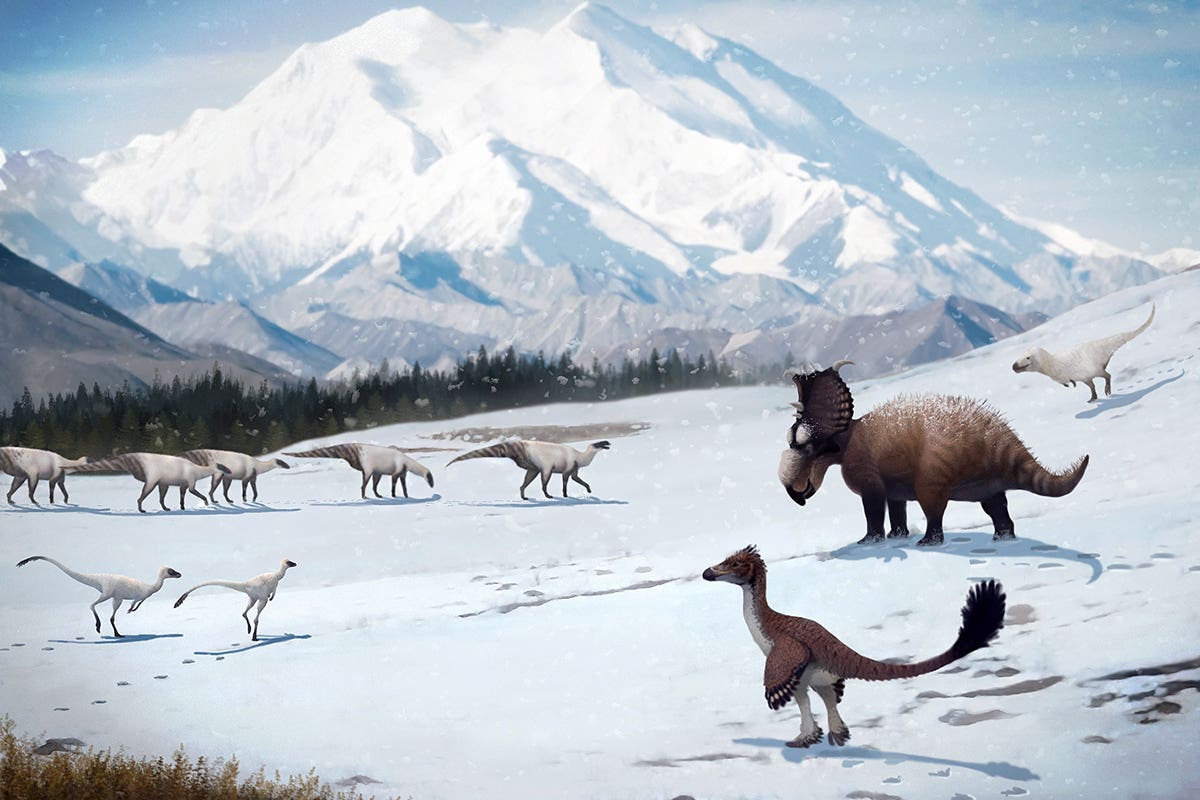We now know what caused the cooling during the age of the dinosaurs
Exciting new research has revealed that a drop in atmospheric carbon dioxide caused a dramatic cooling 133 million years ago

[Sept 14, 2021: Heriot-Watt University]
Exciting new research has revealed that a drop in atmospheric carbon dioxide caused a dramatic cooling 133 million years ago, when dinosaurs roamed the world. Better understanding of the effects of past fluctuations in atmospheric CO2 are critical to understand how heat moves around the globe, which also controls how much ice can build up in polar regions.
A team of researchers, coordinated by Professor Thomas Wagner from The Lyell Centre at Heriot-Watt University, has made this breakthrough in the understanding of extreme climate perturbations in the Mesozoic-Paleogene Greenhouse world, which led to oxygen-depleted or even oxygen-free ocean basins, major biodiversity crisis, and massive changes in wind and precipitation patterns.
This particular event, the "Weissert" Event, a 700 thousand year-long climate perturbation that occurred 133 million years ago, has been studied in unprecedented detail in this study.
Although previous research has demonstrated the close interrelationships between all climate, physical and life components during this and other past climate perturbations, the scale of temperature change and its causal link with levels of atmospheric pCO2 has been less clear.
Liyenne Cavalheiro, who led the study from the University of Milan, explains: "This is the most advanced research undertaken for the Weissert Event perturbation to date, with state-of-the-art modeling and geological data assessment, together demonstrating the link between sea surface temperature and atmospheric CO2 change. Professor Elisabetta Erba continues "We can now envisage what the consequences of a 40% drop in atmospheric pCO2 means, for surface ocean temperature distribution and unique marine and terrestrial environments."
In the study, published this week in Nature Communications, the researchers analyzed deep sea sediments obtained by the Ocean Drilling Program (ODP) from offshore Antarctica. The sediments capture the Early Cretaceous Weissert Event in the semi-enclosed Weddell Sea basin, which at the time was at a paleolatitude of 54 °S and shallow paleowater depths of around 500 meters.
The research combines high-resolution organic carbon isotopes and calibrated sea surface temperature (SST) reconstructions. The results confirm a 3–4 °C drop in SST in the Weddell Sea (near Antarctica) across the Weissert Event. Sebastian Steinig from the University of Bristol explains "The new Weddell Sea data were combined with climate model simulations and available worldwide multi-proxy-based temperature information from the geological record, to arrive at one unifying solution which provides a best-fit between all lines of evidence. The outcome confirms a 3.0 °C (±1.7 °C) global mean surface cooling, which translates into a 40% drop in atmospheric pCO2. Consistent with geologic evidence, the modeling suggests that this pCO2 drop favored the potential build-up of local polar ice, both in the proto-Arctic and in coastal zones around Antarctica.
The research team includes experts from the University of Milan as key strategic partner for stratigraphy, the University of Bristol and GEOMAR-Kiel for climate modeling, the University of Cologne and Heriot-Watt for geochemical proxies, and ENI Spa as expert in palynology and palaeo-oceanography and main sponsor of this study.
Like these kind of feel good stories? Get the Brighter Side of News' newsletter.
Tags: #New_Discoveries, #Dinosaurs, #Climate_Change, #CO2_Levels, #The_Brighter_Side_of_News
Joshua Shavit
Science & Technology Writer | AI and Robotics Reporter
Joshua Shavit is a Los Angeles-based science and technology writer with a passion for exploring the breakthroughs shaping the future. As a contributor to The Brighter Side of News, he focuses on positive and transformative advancements in AI, technology, physics, engineering, robotics and space science. Joshua is currently working towards a Bachelor of Science in Business Administration at the University of California, Berkeley. He combines his academic background with a talent for storytelling, making complex scientific discoveries engaging and accessible. His work highlights the innovators behind the ideas, bringing readers closer to the people driving progress.



